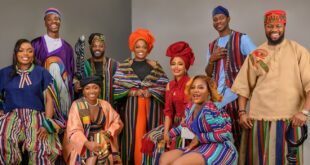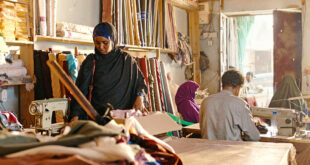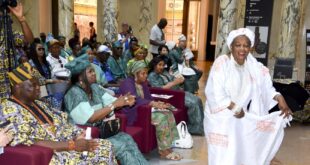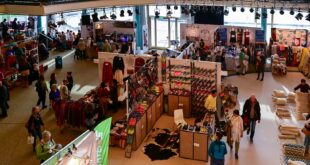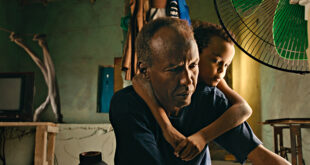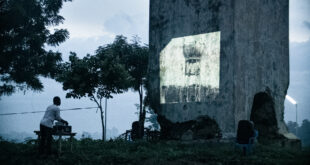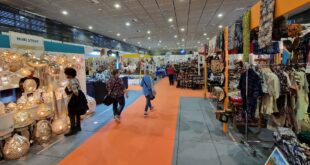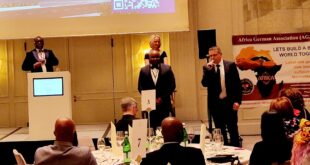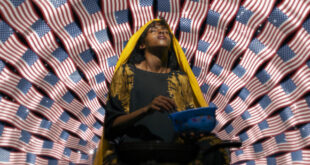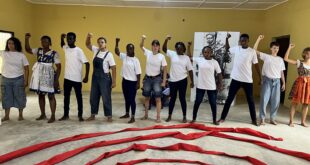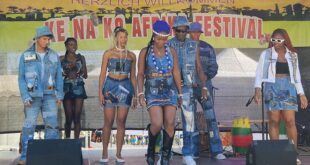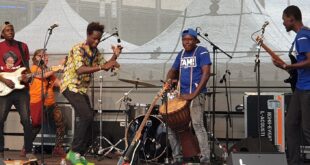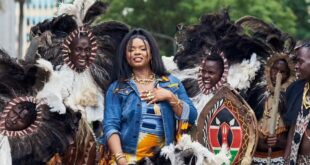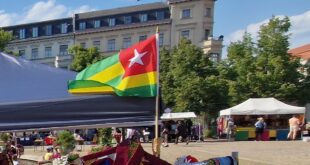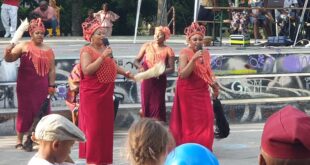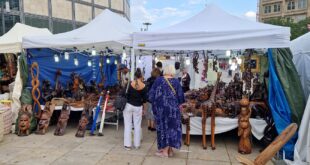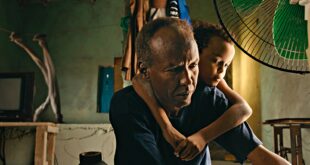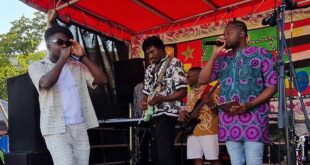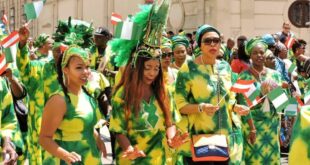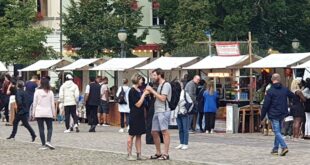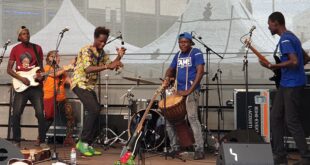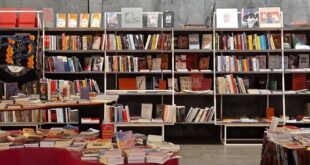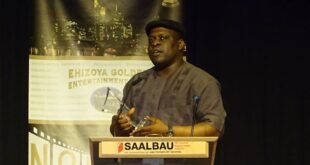The 18th Africa Film Festival Cologne holds from 16 – 26 September 2021. A main focus of the biannual festival is the effects of digitalisation on everyday life, social interaction, economy, ecology and politics in African countries.
—–
The effects of digitalisation on everyday life, social interaction, economy, ecology and politics are now central themes in films from African countries. This is why the issue is a main focus of the 18th Africa Film Festival, organised by FilmInitiativ Köln.
“It is amazing how many great feature films, documentaries and short films have been submitted for the 2021 festival beyond the main theme of digitalisation, despite the pandemic,” festival organisers reveal.
Most of them have never been shown in Germany before, many have already been awarded prizes at international festivals.
“What is and remains remarkable is the creative commitment with which African filmmakers bring current developments and problems of their respective societies to the screen. In doing so, they do not shy away from taboo subjects,” said FilmInitiativ Köln.
One of the positive consequences of digitisation for African cinematography is that with the help of the new technology, classics of African cinema, of which often only a few copies still exist on worn 35mm film reels, can be restored and thus preserved for posterity.
For example, international institutions such as the World Cinema Foundation, the Cineteca di Bologna and the Arsenal – Institute for Film and Video Art in Berlin have already created brilliantly restored digital versions of several early masterpieces of African filmmaking. Three examples of these films can be enjoyed during the festival.
Several other restored classics of African cinema will also be screened during the 11-day festival. One of these is Mandabi , the 1968 feature film by the renowned Senegalese writer and director Ousmane Sembène explores themes of neocolonialism, religion, corruption, and relationships in Senegalese society.
The film is about an unemployed African man, Ibrahima, who lives with his two wives and kids. A nephew of his sends him a money order from France worth 25,000 Francs which he has saved from working as a street sweeper. He is to keep some of the money for himself, save a portion for his nephew, and give a portion to his sister. However, Ibrahima faces numerous difficulties with the Senegalese bureaucracy in trying to cash the money order.
It’s a humorous parable about the destructive power of money in interpersonal relationships. It was the first West African film ever to be made in a native African language, Wolof.
Africa, 60 years on
1960 is considered “the year of Africa” because 17 African countries were able to free themselves from European colonial rule in that year alone. Six decades later, several documentaries focus on important facets of the anti-colonial movements and offer fascinating insights into this revolutionary period of African history.
For example, Mehdi Lallaoui went to France and Algeria in search of traces of Frantz Fanon, the most important theorist of the anti-colonial liberation struggles, in his latest film Sur Les Traces De Frantz Fanon.
Using little-known archive material and interviews with contemporary witnesses and companions, Lallaoui, a Franco-Algerian director, documents the life of the Martinique-born psychiatrist Fanon, who tried to reform the prison-like psychiatric institutions in the then French colony of Algeria from 1953 onwards.
Because Fanon recognised that the terror of French colonial rule as the main cause of his patients’ mental disorders, he finally joined the Algerian liberation movement and became internationally famous as spokesperson for the Front de Libération Nationale (FLN).
With publications such as “Black Skin, White Masks” and “The Damned of the Earth”, Fanon made indelible contributions to the critique of racism that remain relevant today.
Following the screening of Sur Les Traces De Frantz Fanon, there will be an opportunity to discuss Fanon’s current significance in times of the Black Lives Matter movement in a workshop with Mehdi Lallaoui.
Fighting for social change, others
Among the other documentary films festival lovers can expect is Softie, in which Kenyan director Sam Soko uses the example of opposition politician Boniface Mwangi to illustrate the courage that the fight against corrupt politicians and for social change still requires today.
Mwangi , a photographer and social activist, ran for parliament in 2017 and in his election campaign resisted the mobilisation of ethnic resentment common in Kenya, which had already led to serious clashes with many deaths on several occasions.
Two documentaries from Angola and Nigeria deal with dance and music history.
In Para Lá Dos Meus Passos (Beyond My Steps), five contemporary dancers from the Companhia de Dança Contemporânea de Angola interpret traditional dances from the time before the country was colonised by Portugal at various locations.
The music film Elder’s Corner from Nigeria presents artists who have significantly influenced the history and style of popular Nigerian music since independence.
Since many of the songs of these “Elders” can only be found on scratched records or have disappeared completely, they were re-recorded for the film by BANTU in Lagos. BANTU is the band of Cologne-born musician Ade Bantu Odukoya (co-founder of the anti-racist initiative “Brothers Keepers”), who moved to Nigeria more than a decade ago. He returns to Cologne for the festival to personally present the music film as the opening film.
It has become a tradition to present new short films in the late screenings on the festival weekends. The two short film nights on Saturdays are dedicated to current productions from the worldwide diaspora, selected by filmmakers Nancy Mac Granaky-Quaye and Abel Michael. The two guest curators will also introduce the director Christoph Mushayija Rath from Berlin at the festival.
In total, more than 80 short, feature and documentary films will be screened at this year’s festival, and 30 guests from African countries and the diaspora have been invited to Cologne to discuss with the audience.
In addition to the Filmforum in the Museum Ludwig, Café Hallmackenreuther on Brüsseler Platz will once again become a meeting place for and with festival guests.
FilmInitiativ Köln e.V. has been organising the Africa Film Festival Cologne since 1992.
Vivian Asamoah
More information about the festival at:
http://afrikafilmfestivalkoeln.de
www.filme-aus-afrika.de
www.facebook.com/afrikafilmfestivalkoeln
www.instagram.com/afrikafilmfestivalkoeln
 THE AFRICAN COURIER. Reporting Africa and its Diaspora! The African Courier is an international magazine published in Germany to report on Africa and the Diaspora African experience. The first issue of the bimonthly magazine appeared on the newsstands on 15 February 1998. The African Courier is a communication forum for European-African political, economic and cultural exchanges, and a voice for Africa in Europe.
THE AFRICAN COURIER. Reporting Africa and its Diaspora! The African Courier is an international magazine published in Germany to report on Africa and the Diaspora African experience. The first issue of the bimonthly magazine appeared on the newsstands on 15 February 1998. The African Courier is a communication forum for European-African political, economic and cultural exchanges, and a voice for Africa in Europe.



